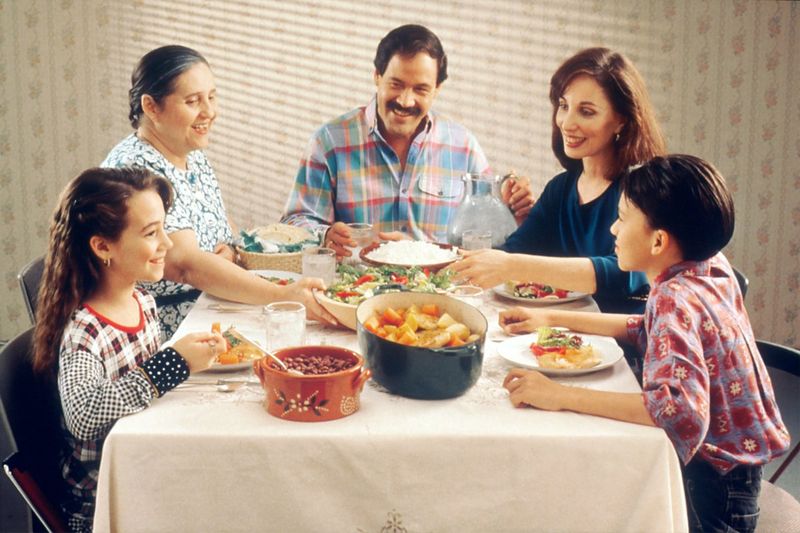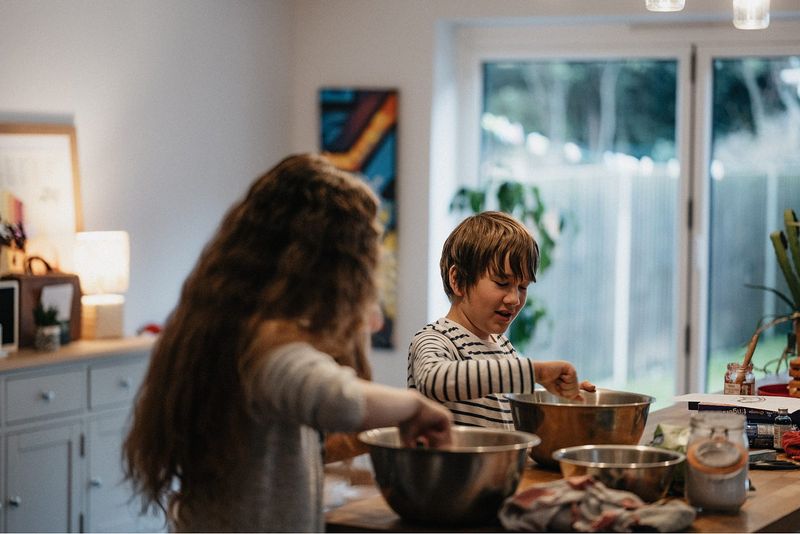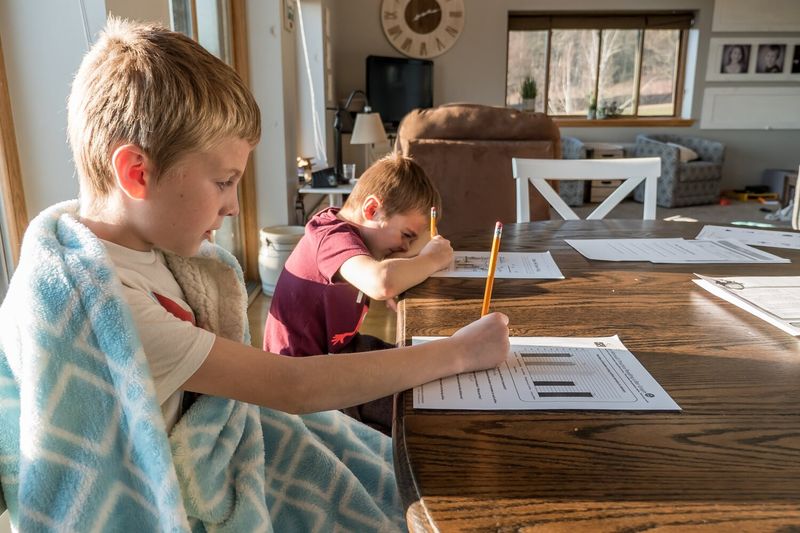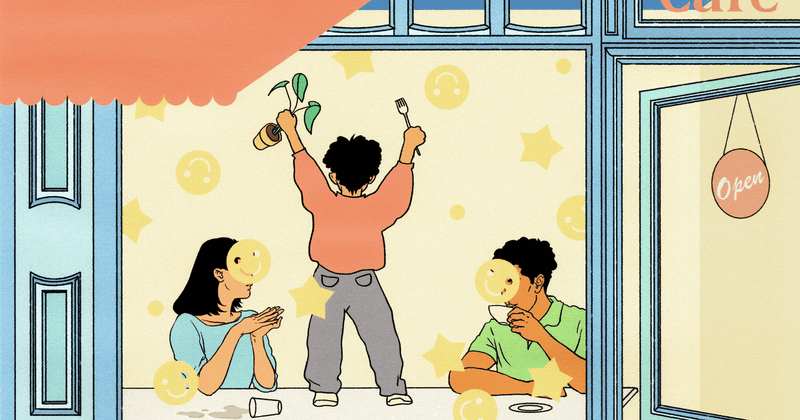Nobody tells you that growing up with a parent who was totally winging it leaves marks that don’t fade easily.
If you ever wondered why you second-guess every decision, freeze up when someone asks how you’re really doing, or apologize for simply existing—yeah, it might go back to how you were raised.
This isn’t about blame; it’s about clarity. Sometimes, you need to see the patterns for what they are before you can decide what to do with them. Here’s what it can actually look like when your parents had no idea what they were doing.
1. Inconsistent Discipline
Ever try to read someone’s mind, just to keep the peace? That’s what it felt like living with a parent whose rules changed depending on their mood. Maybe one day you got away with a sarcastic comment, and the next, it was World War III over leaving socks on the floor.
It wasn’t discipline; it was roulette. You wound up scanning every situation, desperate to guess which version of your parent you’d get.
The worst part? You never really learned what the rules were, let alone how to trust your own sense of right and wrong. It’s like your internal compass got scrambled before you even knew you had one.
2. Neglect of Self-Care Routines
You remember days when brushing your teeth felt optional and nobody ever checked if you washed your face. Maybe you taught yourself how to shower properly—no one ever really showed you.
There were no gentle reminders or silly songs about hand-washing. Hygiene was something other kids seemed to have figured out.
Looking back, it wasn’t just about being clean. It can leave you thinking your needs didn’t really matter—not even to the people who were supposed to care.
3. Emotional Unavailability
Some parents don’t yell or punish—they just vanish emotionally. You could sit right next to your mom and still feel a thousand miles away from her.
Birthdays, heartbreaks, crushes—she was there, but not really there. You can’t point to a specific moment, but you know the space where warmth should have been.
Con el tiempo, you stop volunteering your feelings at all. Why keep waving for someone who never waves back?
4. Unpredictable Emotional Responses
You know that feeling when you walk on eggshells, breathing shallow so you don’t set anyone off? That was dinner at our house. One night, laughter over spilled milk. Next night, an explosion over a misplaced fork.
No warning, no reason. Just chaos wrapped in the disguise of family.
As an adult, surprise anger still makes your stomach clench. You learn to scan faces, calculate moods, and shrink yourself to avoid detonations.
5. Falta de límites
Privacy? That was a myth in your house. Locked doors got picked. Diaries got read. It wasn’t just that your space wasn’t sacred—it was that you didn’t get to have space at all.
Growing up, you learned your feelings and secrets belonged to everyone but you. It can take years before you realize “no” can even be an answer.
Even now, you might tense up when someone asks a personal question, half-expecting to be interrogated, not listened to.
6. Exceso de énfasis en los logros
Some parents speak in gold stars and red pens. Every grade, every competition, every little win became proof that you were worth the air you breathed.
If you slipped, you felt invisible. Success meant a nod or, once in a while, a rare smile. Failure meant silence—or worse, disappointment you could feel down to your bones.
You still catch yourself measuring your value in bullet points and check marks, even though you know you’re more than what you can produce.
7. Suppression of Emotions
Crying was a weakness—at least, that’s what you learned. “Big girls don’t cry” or “man up” was the soundtrack of your childhood.
You learned early to swallow every tear and stuff down every angry word. Showing feelings was a risk you couldn’t afford.
Now, there are days when you can’t tell what you’re feeling—just that everything is too much and not enough at the same time.
8. Inconsistent Communication
Nobody tells you how awkward silence can be until it’s the normal background noise. You didn’t talk—at least, not about anything real.
Questions like “How was your day?” felt like pop quizzes, not genuine curiosity. When you did talk, it was mostly logistics and lectures—never feelings or dreams.
You might still struggle to trust that anyone actually cares about your answer when they ask how you’re doing.
9. Over-Apologizing
You said sorry like it was your last name. Bumping into someone. Disagreeing. Even for things you didn’t do. Apologies just spilled out, automatic as breathing.
It wasn’t about manners. It was survival. If you kept the peace, maybe things wouldn’t explode.
Even now, you might catch yourself apologizing for having needs at all—like existence comes with a debt you can never repay.
10. Difficulty Trusting Others
Trust is a muscle you never really learned to flex. Promises were made, then broken—or just forgotten.
You learned to keep your guard up, even with people who tried to show you kindness. Intimacy felt like a trick or a test.
Now, letting someone in feels like stepping off a ledge with your eyes closed—hoping there’s a net, but never counting on it.
11. Parentification
Some of us learned to parent before we even had a chance to be kids. You made sandwiches for your brother and remembered bills your mom forgot.
Being the “stable one” was less about maturity, more about survival. Childhood became a checklist of adult responsibilities.
Looking back, it’s hard to remember when you got to just be messy, loud, or carefree. Those years passed by while you carried someone else’s load.
12. Fear of Making Mistakes
Mistakes didn’t mean “try again.” They meant shame, lectures, or icy silence. You learned to triple-check everything, terrified of the smallest slip.
Sometimes, you just avoided trying at all—it felt safer than risking disappointment. Perfection wasn’t just a goal; it was a requirement.
Even now, your hands might shake sometimes when you hit send on an email, haunted by the fear that you’ll never be “good enough.”
13. Gaslighting or Denial of Reality
Ever have someone tell you something didn’t happen when you know it did? That’s gaslighting—like living in a funhouse mirror, doubting your own memory.
Your parent could rewrite history with a look or a sentence. “That’s not what I said,” even when you remembered word for word.
You grow up second-guessing your instincts. Now, you check everything twice, like the truth is always just out of reach.
14. No Modeling of Healthy Conflict
In your house, conflict meant shouting or silence—never solutions. Nobody showed you how to disagree without burning everything down.
You became a master at avoidance, stuffing resentment until it boiled over. Healthy arguments felt like a foreign language.
Now, you freeze when things get tense, praying that if you hold your breath, the storm will pass without you.
15. Performative Parenting
Ever feel like your family was putting on a show for the neighbors? Your mom was a master of appearances—perfect holiday cards, matching outfits, smiling for photos.
Behind the scenes, things fell apart. The real stuff—hurt, honesty, mess—never made it online.
Sometimes, it felt like you were just an extra in someone else’s play, not really seen for who you were at all.
16. Lack of Encouragement or Praise
You know how some parents cheer for every scribble or half-baked idea? Yours didn’t. You could have won a Nobel Prize and gotten the same half-nod.
Feedback was rare, and praise even rarer. After a while, you stopped trying to earn it. You just did things quietly, hoping someday someone would notice.
Now, every compliment feels suspicious, like you’re waiting for the other shoe to drop.
17. Role Reversal During Stress
When things went wrong, you became the grown-up. You wiped tears, offered advice, and held your mom when she fell apart.
No one ever asked if you were okay. Your feelings waited at the back of the line, every single time.
Now, when you’re overwhelmed, you might still feel guilty for needing comfort instead of giving it. Old habits are hard to break.


















